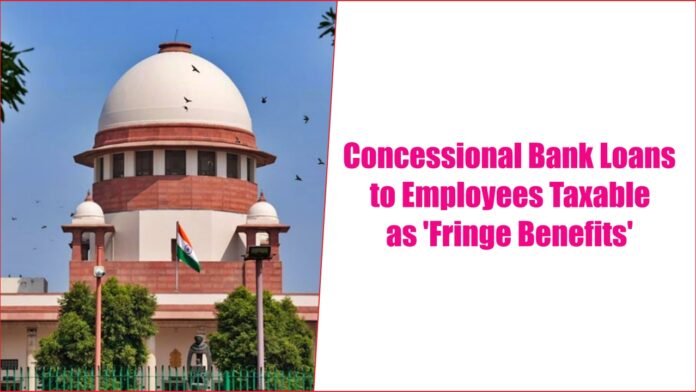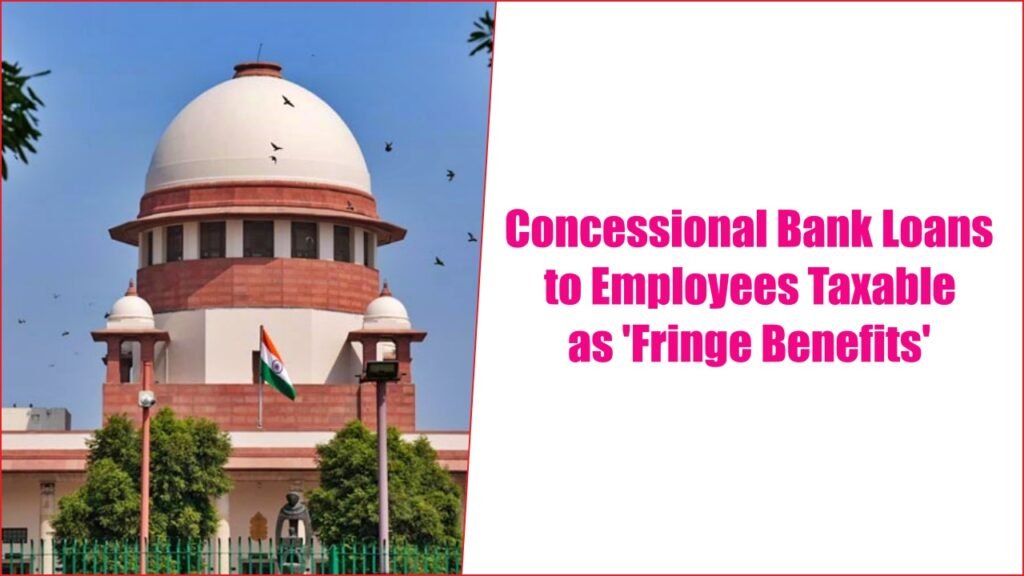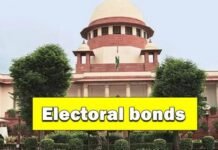
New Delhi: In a landmark judgment, the Supreme Court of India has delivered a significant verdict affecting bank employees nationwide. The apex court has ruled that the provision of interest-free or concessional loans by banks to their employees constitutes ‘fringe benefits’ or ‘facilities’ and is consequently taxable.
The Crux of the Matter
The case arose from a challenge by bank employee organizations against an Income Tax Department rule. This rule mandated that the loan facilities, which were previously exclusive and non-taxable benefits for bank employees, would now be subject to tax. The legal contention centered around the definition of ‘perquisites’ as outlined in Section 17(2)(viii) of the Income Tax Act, 1961, and Rule 3(7)(i) of the Income Tax Rules, 1962.
Supreme Court’s Interpretation
The bench, comprising Justices Sanjiv Khanna and Dipankar Dutta, clarified the distinction between ‘perquisites’ and ‘benefits in lieu of salary.’ They emphasized that a ‘perquisite’ is an additional benefit linked to an employee’s position and is provided over and above the salary. Given this interpretation, the concessional loan facility offered to bank employees falls within the ambit of ‘perquisites.’
Implications for Bank Employees
As a result of this ruling, bank employees who avail themselves of loans at concessional rates or without interest will now find these benefits taxable. This decision upholds the income tax rules and extends the tax liability to what was once considered a privileged facility among bank employees.

Conclusion
The Supreme Court’s decision marks a pivotal change in the taxation of employee benefits within the banking sector. Bank employees, who have long enjoyed the perk of concessional loans, must now adjust to the new reality where such benefits are no longer tax-exempt.















































